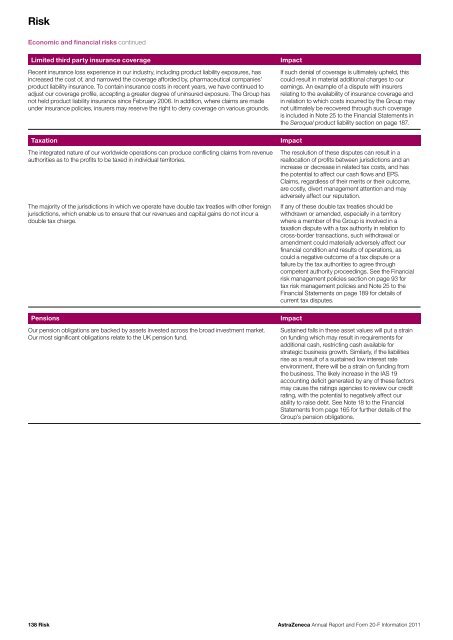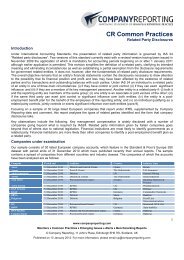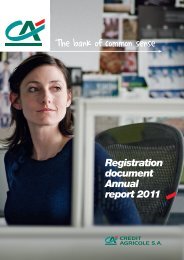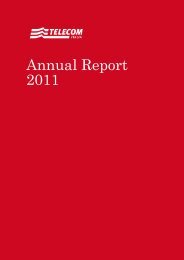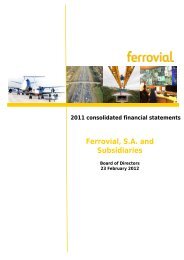AstraZeneca Annual Report and Form 20-F Information 2011
AstraZeneca Annual Report and Form 20-F Information 2011
AstraZeneca Annual Report and Form 20-F Information 2011
- No tags were found...
You also want an ePaper? Increase the reach of your titles
YUMPU automatically turns print PDFs into web optimized ePapers that Google loves.
RiskEconomic <strong>and</strong> financial risks continuedLimited third party insurance coverageRecent insurance loss experience in our industry, including product liability exposures, hasincreased the cost of, <strong>and</strong> narrowed the coverage afforded by, pharmaceutical companies’product liability insurance. To contain insurance costs in recent years, we have continued toadjust our coverage profile, accepting a greater degree of uninsured exposure. The Group hasnot held product liability insurance since February <strong>20</strong>06. In addition, where claims are madeunder insurance policies, insurers may reserve the right to deny coverage on various grounds.TaxationThe integrated nature of our worldwide operations can produce conflicting claims from revenueauthorities as to the profits to be taxed in individual territories.The majority of the jurisdictions in which we operate have double tax treaties with other foreignjurisdictions, which enable us to ensure that our revenues <strong>and</strong> capital gains do not incur adouble tax charge.PensionsOur pension obligations are backed by assets invested across the broad investment market.Our most significant obligations relate to the UK pension fund.ImpactIf such denial of coverage is ultimately upheld, thiscould result in material additional charges to ourearnings. An example of a dispute with insurersrelating to the availability of insurance coverage <strong>and</strong>in relation to which costs incurred by the Group maynot ultimately be recovered through such coverageis included in Note 25 to the Financial Statements inthe Seroquel product liability section on page 187.ImpactThe resolution of these disputes can result in areallocation of profits between jurisdictions <strong>and</strong> anincrease or decrease in related tax costs, <strong>and</strong> hasthe potential to affect our cash flows <strong>and</strong> EPS.Claims, regardless of their merits or their outcome,are costly, divert management attention <strong>and</strong> mayadversely affect our reputation.If any of these double tax treaties should bewithdrawn or amended, especially in a territorywhere a member of the Group is involved in ataxation dispute with a tax authority in relation tocross-border transactions, such withdrawal oramendment could materially adversely affect ourfinancial condition <strong>and</strong> results of operations, ascould a negative outcome of a tax dispute or afailure by the tax authorities to agree throughcompetent authority proceedings. See the Financialrisk management policies section on page 93 fortax risk management policies <strong>and</strong> Note 25 to theFinancial Statements on page 189 for details ofcurrent tax disputes.ImpactSustained falls in these asset values will put a strainon funding which may result in requirements foradditional cash, restricting cash available forstrategic business growth. Similarly, if the liabilitiesrise as a result of a sustained low interest rateenvironment, there will be a strain on funding fromthe business. The likely increase in the IAS 19accounting deficit generated by any of these factorsmay cause the ratings agencies to review our creditrating, with the potential to negatively affect ourability to raise debt. See Note 18 to the FinancialStatements from page 165 for further details of theGroup’s pension obligations.138 Risk<strong>AstraZeneca</strong> <strong>Annual</strong> <strong>Report</strong> <strong>and</strong> <strong>Form</strong> <strong>20</strong>-F <strong>Information</strong> <strong>20</strong>11


